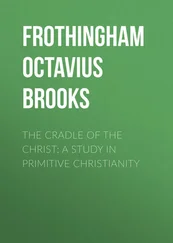George Fiske - The Challenge of the Country - A Study of Country Life Opportunity
Здесь есть возможность читать онлайн «George Fiske - The Challenge of the Country - A Study of Country Life Opportunity» — ознакомительный отрывок электронной книги совершенно бесплатно, а после прочтения отрывка купить полную версию. В некоторых случаях можно слушать аудио, скачать через торрент в формате fb2 и присутствует краткое содержание. Жанр: foreign_antique, foreign_prose, на английском языке. Описание произведения, (предисловие) а так же отзывы посетителей доступны на портале библиотеки ЛибКат.
- Название:The Challenge of the Country: A Study of Country Life Opportunity
- Автор:
- Жанр:
- Год:неизвестен
- ISBN:нет данных
- Рейтинг книги:5 / 5. Голосов: 1
-
Избранное:Добавить в избранное
- Отзывы:
-
Ваша оценка:
- 100
- 1
- 2
- 3
- 4
- 5
The Challenge of the Country: A Study of Country Life Opportunity: краткое содержание, описание и аннотация
Предлагаем к чтению аннотацию, описание, краткое содержание или предисловие (зависит от того, что написал сам автор книги «The Challenge of the Country: A Study of Country Life Opportunity»). Если вы не нашли необходимую информацию о книге — напишите в комментариях, мы постараемся отыскать её.
The Challenge of the Country: A Study of Country Life Opportunity — читать онлайн ознакомительный отрывок
Ниже представлен текст книги, разбитый по страницам. Система сохранения места последней прочитанной страницы, позволяет с удобством читать онлайн бесплатно книгу «The Challenge of the Country: A Study of Country Life Opportunity», без необходимости каждый раз заново искать на чём Вы остановились. Поставьте закладку, и сможете в любой момент перейти на страницу, на которой закончили чтение.
Интервал:
Закладка:
This city-to-country movement is naturally strongest where the country-to-city movement has long been developing. The Massachusetts State College reports only about 25 % of its new students sons of farmers and 50 % of its enrollment from the cities. Yet even in the rural state of North Carolina, with 86 % in rural territory (under 2,500), the number of city boys studying agriculture in the state college is “large enough to make the fact striking.”
In the College of Agriculture of the University of Illinois, there are 756 students enrolled this year. Eighty-one of these came from Chicago and 257 from other cities and towns above $5,000; making 45 % from urban centers. 13 13 Some allowance should be made for the possibility of students enrolling from a small city who actually live on a suburban farm.
One-third of the agricultural students at the University of Missouri last year enrolled from cities of 8,000 or over, communities which formed 36 % of the state’s population. In general it seems to be true that the proportion of city boys in the various agricultural colleges is approximately as large as the ratio of city population in the state; which indicates that city boys are almost as likely to seek technical training for country professions as the country boys are. In a few cases, as in Massachusetts, it is partly accounted for by the fact that the Agricultural College is the only state institution with free tuition. The breadth of the courses also draws many who do not plan for general farming but for specialized farming and the increasing variety of the modern rural professions. The facts clearly show that the city boys in state after state are seeing the vision of country life opportunity.
A study of the home addresses of American students at the New York State College of Agriculture, Cornell University, for a period of twelve years prior to 1907 shows 19 % from large cities, 34 % from small cities and towns, and 47 % from rural communities under 2,000. The proportion of city students is evidently now increasing, as indicated by this year’s figures. Of the new students entering this year from within the state 57 % came from cities of 5,000 or over, 51 % of whom came from cities of 10,000 upwards. Making considerable allowance for the neglect to add “R. F. D.” in registration, it is still evident that the splendid equipment for country life leadership offered at Cornell is attracting more and more young men and women from the cities.
Reasons for this City-to-Country Movement
Two months ago the agricultural students at the University of Illinois who came from cities and larger towns were asked, “What were the considerations which led you to choose an agricultural course?” Over two hundred gave their answers in writing. Love of country life was the main reason mentioned by 131; dislike for the city, 22; the financial inducements, 62; and, land in the family, 36. Farming was stated as the ambition of 167, teaching 21, experiment station work 23, landscape gardening 6, and other rural professions 15.
In a similar referendum at Cornell the city students mentioned many reasons for choosing their life work in the country. Among them were cited the love of nature and farm life, the desire to live out of doors, love for growing things, and love for animals, the financial rewards of farming, its independence, its interesting character and the healthful life it makes possible. Other interesting reasons given will be cited later in this chapter.
Some City Life Drawbacks
Millions of people unquestionably live in the country from choice. They would not live in the city unless compelled to do so. A peculiarly amusing kind of provincialism is the attitude of the superficial city dweller who cannot understand why any one could possibly prefer to live in the country! Yet an unusually able college professor with a national reputation recently remarked that he could not conceive of anything which could induce him to live in the city.
With all the attractions of the city, it has serious drawbacks which are not found in the country. If country boys actually understood the conditions of the struggle into which they were entering in the city, more of them would stay on the farm. “I lived one year in the city; which was long enough,” writes a country boy. The severe nervous tension of city life, the high speed of both social life and industry and the tyranny to hours and close confinement in offices, banks and stores are particularly hard for the country bred. The many disadvantages of the wage-earner, slack work alternating with the cruel pace, occasional strikes or lockouts, and the impersonal character of the corporation employer, coupled with the fact often realized that in spite of the crowds there are “no neighbors” in the city, reminds the country-bred laborer of the truth of President Roosevelt’s words: “There is not in the cities the same sense of common underlying brotherliness which there is still in the country districts.”
A striking cartoon was recently published by the Paterson (N. J.) Guardian entitled “The City Problem.” It represented “Mr. Ruralite” in the foreground halting at the road which leads down to the city, while from the factory blocks by the river two colossal grimy hands are raised in warning, with the message, GO BACK! On one hand is written HIGH PRICES; on the other POOR HEALTH.
With the recent improvement in city sanitation, which has perceptibly lowered the death rate, the city is physically a safer place to live in than it used to be; but slum sections are still reeking with contagion, and through most of the city wilderness the smoke and grime is perpetual and both pure air and clear sunshine are luxuries indeed. For most people the crowded city offers little attraction for a home. The heart of great cities has ceased to grow. The growing sections are the outlying wards and the suburbs, for obvious reasons. The moral dangers of the city where the saloon is usually entrenched in politics and vice is flagrantly tolerated if not actually protected help to explain the fact that a continuous procession of city families is seeking homes in suburban or rural towns where the perils surrounding their children are not so serious.
The Attractiveness of Country Life
It is evidently true, as Dean Bailey suggests, “Even in this epoch of hurried city-building, the love of the open country and of plain, quiet living still remains as a real and vital force.” The chance to live in the open air, to do out of door work and enjoy consequently a vigorous health, is a great boon which is coming to be more and more appreciated. “I intend to stick to farm life,” writes a Cornell agricultural student, “for I see nothing in the turmoil of city life to tempt me to leave the quiet, calm and nearness to nature with which we, as farmers, are surrounded. I also see the possibilities of just as great financial success on a farm as in any profession which my circumstances permit me to attain.” Another contented country boy writes, “I think the farm offers the best opportunity for the ideal home. I believe that farming is the farthest removed of any business from the blind struggle after money, and that the farmer with a modest capital can be rich in independence, contentment and happiness.”
A variety of other significant reasons have been collected by Director Bailey from boys who are loyal to their country homes. Many speak of the profitableness of scientific farming, but the majority are thinking of other privileges in rural life which outweigh financial rewards, such as the fact that the farmer is really producing wealth first-hand and is serving the primary needs of society. “I expect to make a business of breeding live-stock. I like to work out of doors, where the sun shines and the wind blows, where I can look up from my work and not be obliged to look at a wall. I dislike to use a pen as a business. I want to make new things and create new wealth, not to collect to myself the money earned by others. I cannot feel the sympathy which makes me a part of nature, unless I can be nearer to it than office or university life allows. I like to create things. Had I been dexterous with my hands, I might have been an artist; but I have found that I can make use of as high ideals, use as much patience, and be of as much use in the world by modeling in flesh and bone as I can by modeling in marble.”
Читать дальшеИнтервал:
Закладка:
Похожие книги на «The Challenge of the Country: A Study of Country Life Opportunity»
Представляем Вашему вниманию похожие книги на «The Challenge of the Country: A Study of Country Life Opportunity» списком для выбора. Мы отобрали схожую по названию и смыслу литературу в надежде предоставить читателям больше вариантов отыскать новые, интересные, ещё непрочитанные произведения.
Обсуждение, отзывы о книге «The Challenge of the Country: A Study of Country Life Opportunity» и просто собственные мнения читателей. Оставьте ваши комментарии, напишите, что Вы думаете о произведении, его смысле или главных героях. Укажите что конкретно понравилось, а что нет, и почему Вы так считаете.












